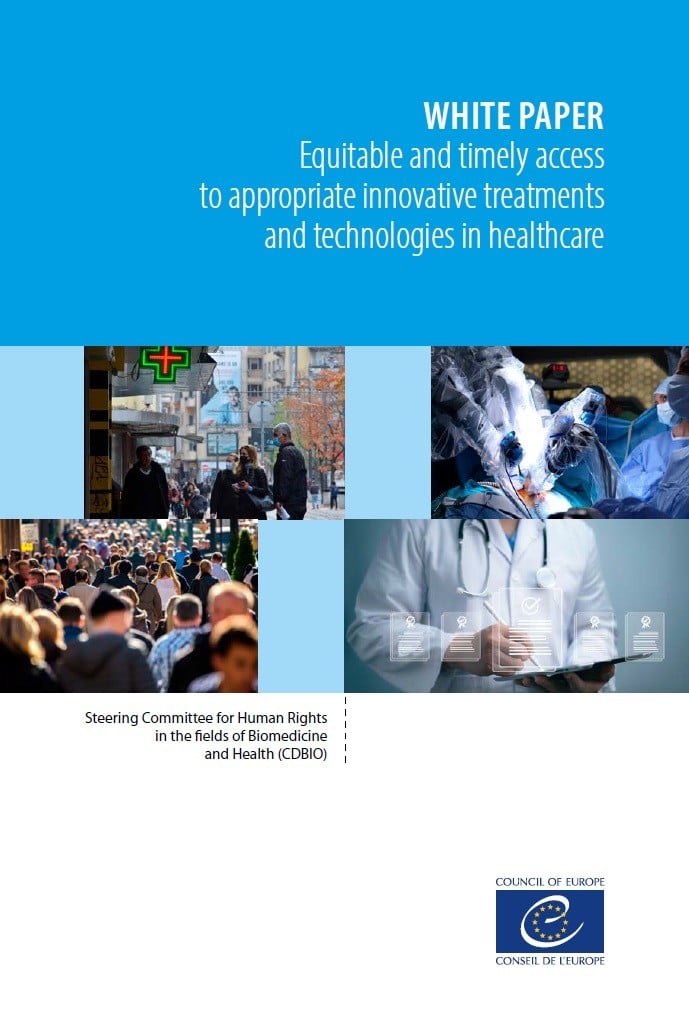Promoting equitable and timely access to appropriate innovative treatments and technologies in healthcare
Grounded in Article 3 of the Convention on Human Rights and Biomedicine, this White Paper explores the ethical and policy challenges related to equitable and timely access to appropriate innovative treatments and technologies in healthcare. It aims to support policy makers, regulators, healthcare professionals and researchers by highlighting key barriers – affordability, availability, accessibility and acceptability – and by identifying five priority areas for action. The recommendations of this White Paper are intended to guide future policies and practices to ensure innovation strengthens health equity rather than exacerbates existing disparities.
EXECUTIVE SUMMARY 1. INTRODUCTION
1.1. Importance of equitable and timely access to appropriate innovative treatments and technologies
1.2. Potential benefits and risks of innovative treatments and technologies in healthcare
1.3.Scope and objectives of the White Paper
2. DEFINITION AND CHARACTERISTICS OF INNOVATIVE TREATMENTS AND TECHNOLOGIES IN HEALTHCARE
2.1. Definition
2.2. Characteristics
3. CHALLENGES RELATED TO ASSESSING QUALITY
3.1. Challenges in evaluating safety, efficacy and superiority of innovative treatments and technologies
3.2. Complexity in decision making
4. CHALLENGES RELATED TO EQUITABLE AND TIMELY ACCESS TO APPROPRIATE INNOVATIVE TREATMENTS AND TECHNOLOGIES
4.1. Impact of social determinants of health
4.2. Affordability
4.3. Availability and timely access
4.4. Accessibility
4.5. Acceptability
5. BALANCING INDIVIDUAL RIGHTS AND PUBLIC HEALTH NEEDS
5.1. Principles for resource allocation at the health system level
5.2. Principles for prioritisation at the patient level
6. KEY CONSIDERATIONS





